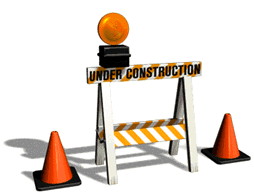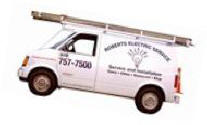Is the
Electrical Code in the Public Domain?
WORK IN PROGRESS
For decades, publishers of model codes -- sample laws that a city or
state could adopt -- have claimed copyright in their creations.
State and local laws and ordinances based on such codes often
contain copyright notices in the publisher’s name or some other
indication the publisher claims the copyright. In a significant
victory for public domain proponents, a federal appellate court
found that model codes enter the public domain when they are enacted
into law by local governments.
The case came about when Peter Veeck posted the local building codes
of Anna and Savoy, two small towns in north Texas, on his website.
Both towns had adopted a model building code published by Southern
Building Code Congress International, Inc. (SBCCI). Veeck made a few
attempts to inspect several towns’ copies of the Building Code, but
he was not able to locate them easily.
Eventually, Veeck purchased the model building codes directly from
SBCCI; he paid $72 and received a copy of the codes on disk.
Although the software licensing agreement and copyright notice
indicated that the codes could not be copied and distributed, Veeck
cut and pasted their text onto his website. Veeck’s website did not
specify that the codes were written by SBCCI. Instead, he identified
them, correctly, as the building codes of Anna and Savoy, Texas.
SBCCI sued Veeck for copyright infringement. Veeck lost in the trial
court, but ultimately won on appeal. The court held that the model
codes were in the public domain because:
The law is always in the public domain, whether it consists of
government statutes, ordinances, regulations, or judicial decisions.
When a model code is enacted into law, it becomes a fact—the law of
a particular local government. Indeed, the particular wording of a
law is itself a fact, and that wording cannot be expressed in any
other way. A fact itself is not copyrightable, nor is the way that
the fact is expressed if there is only one way to express it. Since
the legal code of a local government cannot be expressed in any way
but as it is actually written, the fact and expression merge, and
the law is uncopyrightable.
=======================================================================
(Veeck v. Southern Building Code Congress International, Inc., 293 F.3d 791 (5th
Cir. 2002).)
The Veeck decision’s reasoning has the effect of placing every model code that
has been adopted by a government entity in the public domain. Any person may
reproduce such a code, as adopted, for any purpose, including placing it on a
website. However, model codes that have not been adopted by any government body
are protected by copyright.
Please review "Reasons For Electrical Codes & Laws"
Access the Database(s) of Laws, aka "Codes"
|
|
|
 |
*This page and web site is finished...
I just like the blinking light!
|
==================================
======================================
If
you have any questions on electrical issues, you can contact us via
telephone at (619) 757-7500 or via email to or
regular mail below:
Service@RobertsElectricService.com.
Roberts Electric
Service, Inc.
302 Washington St #100
San Diego, CA 92103 Copyright ©2004-2012 Roberts Electric Service, Inc.
|




